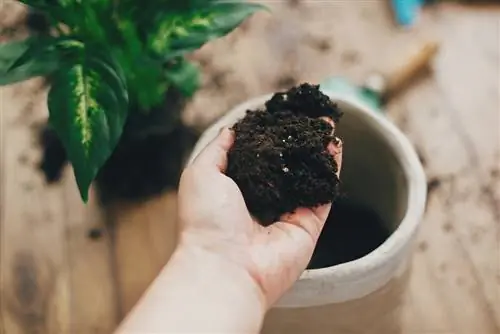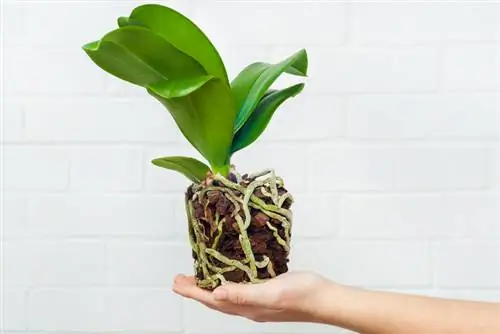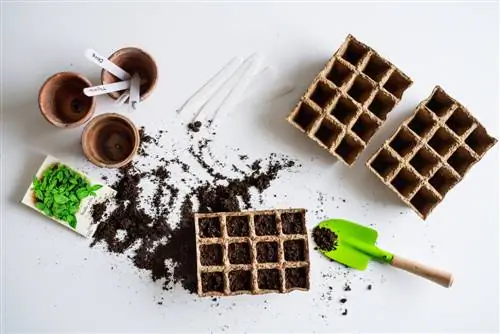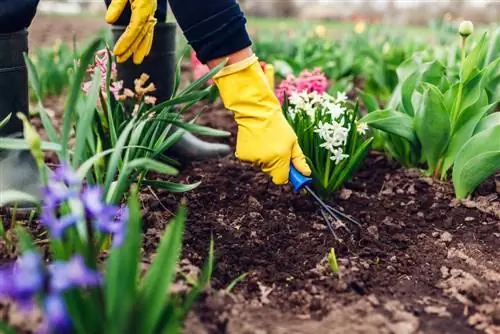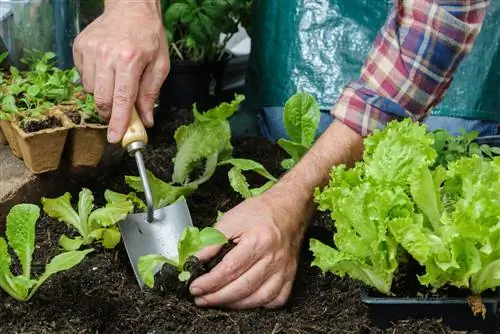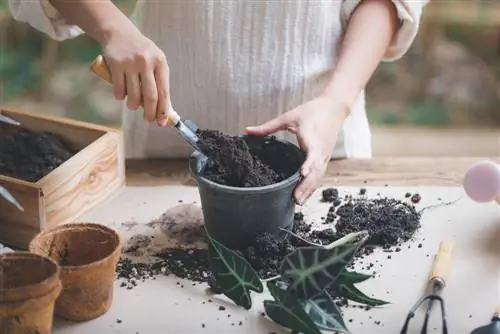- Author admin leonars@hobbygardeners.com.
- Public 2023-12-25 17:45.
- Last modified 2025-01-23 11:22.
If you buy plants for your windowsill, you don't have to worry about what kind of soil they need, because houseplants are usually already potted. New potting soil is only needed when repotting. But what requirements should it meet?
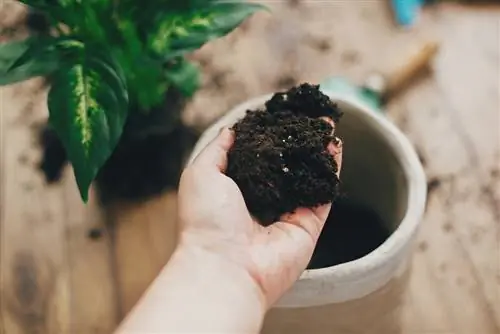
What requirements should potting soil for houseplants meet?
Potting soil for houseplants should be nutrient-rich, moisture-retaining and structurally stable and contain components such as humus, compost, fiber, clay, sand, lime and slow-release fertilizer. Peat-free alternatives with green compost, bark humus and coconut or wood fibers are more environmentally friendly.
Contents of the potting soil
For a plant to grow well in potting soil, it should have the following ingredients, among others:
- Humus
- Compost
- Fiber materials, e.g. E.g. coconut, wood, algae
- Sound
- Sand
- Lime for the pH value
- Long-term fertilizer
- Peat for soil loosening and water storage
The additive peat should be avoided for environmental reasons. On the one hand, valuable moorland landscapes are damaged by the mining of peat and on the other hand, peat makes the earth acidic. Most houseplants don't tolerate this so well. Nevertheless, you don't want to completely do without the addition of peat (€16.00 on Amazon), as there is currently no substitute that has all of its good properties. Peat-free potting soil is already available in garden stores. They consist, among other things, of green compost, bark humus, coconut and wood fibers in order to have properties similar to those of peat-containing potting soil.
The potting soil for houseplants
This special soil is specially formulated for potted plants. Houseplants only have a limited amount of space available, their pot, and therefore need to be adequately supplied with nutrients in the smallest of spaces. Potting soil is therefore particularly rich in nutrients. Depending on the manufacturer, it contains more or less fertilizer. The depot is usually sufficient for one to two months. Then you have to help with a suitable fertilizer.
Potting soil must be able to store moisture well so that the houseplants can always meet their needs. Special fiber ensures optimal storage capacity. The addition of clay granules is ideal. In addition to water, the clay also stores nutrients in the soil.
Potting soil must have a stable structure so that the plants have a good grip and can root optimally. The soil must not become compacted even after a long period of time so that the roots can always be supplied with sufficient oxygen. The potting soil is structurally stable through compost, coconut fibers and perlite (volcanic glass in the form of small grains).

